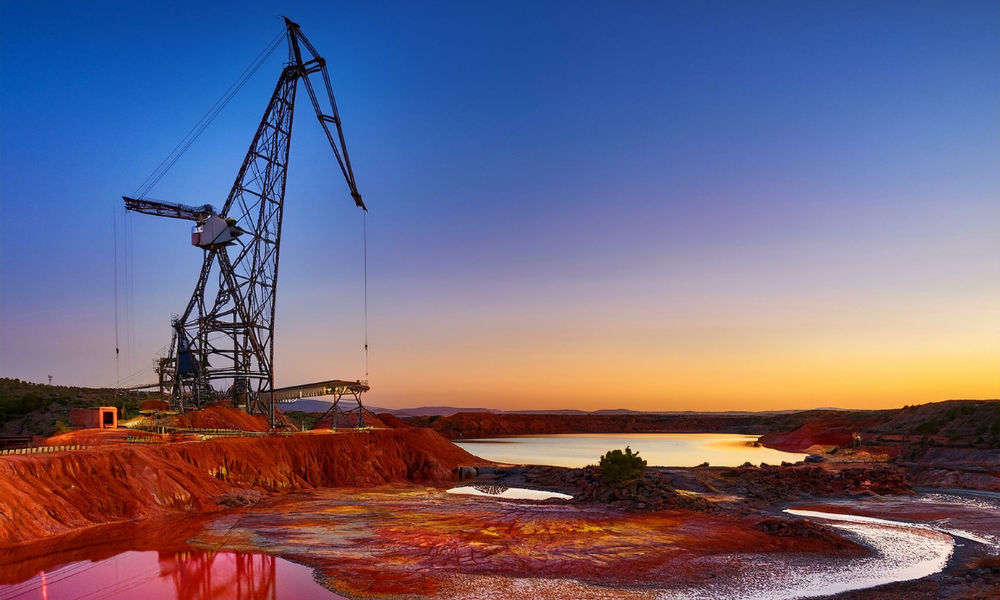Company commits $1.7bn to Quebec hydro plant while investing $900m in Chile's Maricunga project

Rio Tinto PLC will invest up to $1.7bn over seven years to modernise the Isle-Maligne hydroelectric generating plant in Alma, Quebec, according to The Globe and Mail.
The facility, which is 99 years old, powers the company's aluminium smelters in the region and currently has an installed capacity of about 448 megawatts.
The company stated it is the largest single investment in its hydroelectric assets since the 1950s.
In a statement cited by The Globe and Mail, Sébastien Ross, managing director of Rio Tinto Aluminium’s Atlantic operations, said, “This major investment to modernise our facilities will ensure the long-term future and competitivity of our low carbon aluminium production in Quebec.”
He added that the project will support customers in both Canada and the United States for decades to come.
As reported by Reuters, Rio Tinto will also enter the Chilean lithium market through a partnership with state-owned miner Codelco for the Maricunga lithium project.
Rio Tinto will contribute up to US$900m to the project, acquiring a 49.99 percent stake, while Codelco will retain control of the remaining share.
According to Reuters, the deal includes an initial investment of US$350m at closing—expected in the first quarter of next year—followed by US$500m upon final investment decision, and US$50m if commercial production is reached by the end of 2030.
The Maricunga project has yet to be mined but is home to one of the highest lithium brine concentrations globally.
Rio Tinto CEO Jakob Stausholm said the company aims to “bring significant investment” to the region and highlighted potential synergies with the Nuevo Cobre copper exploration project, which Rio already shares with Codelco in northern Chile.
BTG Pactual analyst Cesar Perez told Reuters that the joint venture “accelerates the country’s strategic objective to reclaim leadership as the world’s top lithium producer, while allowing Codelco to diversify its portfolio.”
Chile lost its position as the top global lithium producer in 2017 when Australia overtook it.
Reuters also noted that the Maricunga project attracted four binding offers, though Codelco did not identify the other bidders.
Direct lithium extraction (DLE), a technology under evaluation for use by 2033, may improve environmental efficiency but has yet to be successfully deployed at scale.
, Rio Tinto’s lithium ambitions in South America include its 2021 acquisition of the Rincon project in Argentina for US$825m, and a US$6.7bn purchase of US-based Arcadium, which holds multiple assets in Argentina.
Lithium consultant Daniel Jimenez told Reuters the partnership helps Rio Tinto secure a long-term strategic position by bringing capital and operational expertise from its Argentine operations.
Back in Quebec, Rio Tinto’s latest investment builds on previous commitments.
In 2023, the company announced a $1.4bn expansion of its Saguenay aluminium operations, which added 96 new electrolysis pots to the existing 38 and increased capacity to approximately 220,000 tonnes per year.
According to The Globe and Mail, these pots are lined containers where aluminium is made through electrolysis.
Rio Tinto is the largest private hydroelectricity producer in Canada, operating eight hydro power plants.
Rio Tinto’s announcement comes at a time when the US government is implementing protectionist trade policies.
The Trump administration imposed 25 percent tariffs on steel and aluminium imports from March, including those from Canada.
The duties apply to both raw and finished products but exempt metal “melted and poured” in the US.
According to The Globe and Mail, these tariffs have already affected Canadian aluminium product manufacturers, leading some to cut production and reduce factory work hours.
However, TFI International Inc. reported that shipments of raw aluminium remain steady.
Quebec Premier François Legault said in a podcast interview that he is trying to arrange a meeting with US President Donald Trump to discuss a long-term aluminium supply deal.
Legault said the arrangement could be priced attractively to ensure the President “wouldn’t have any more worries” about aluminium.



